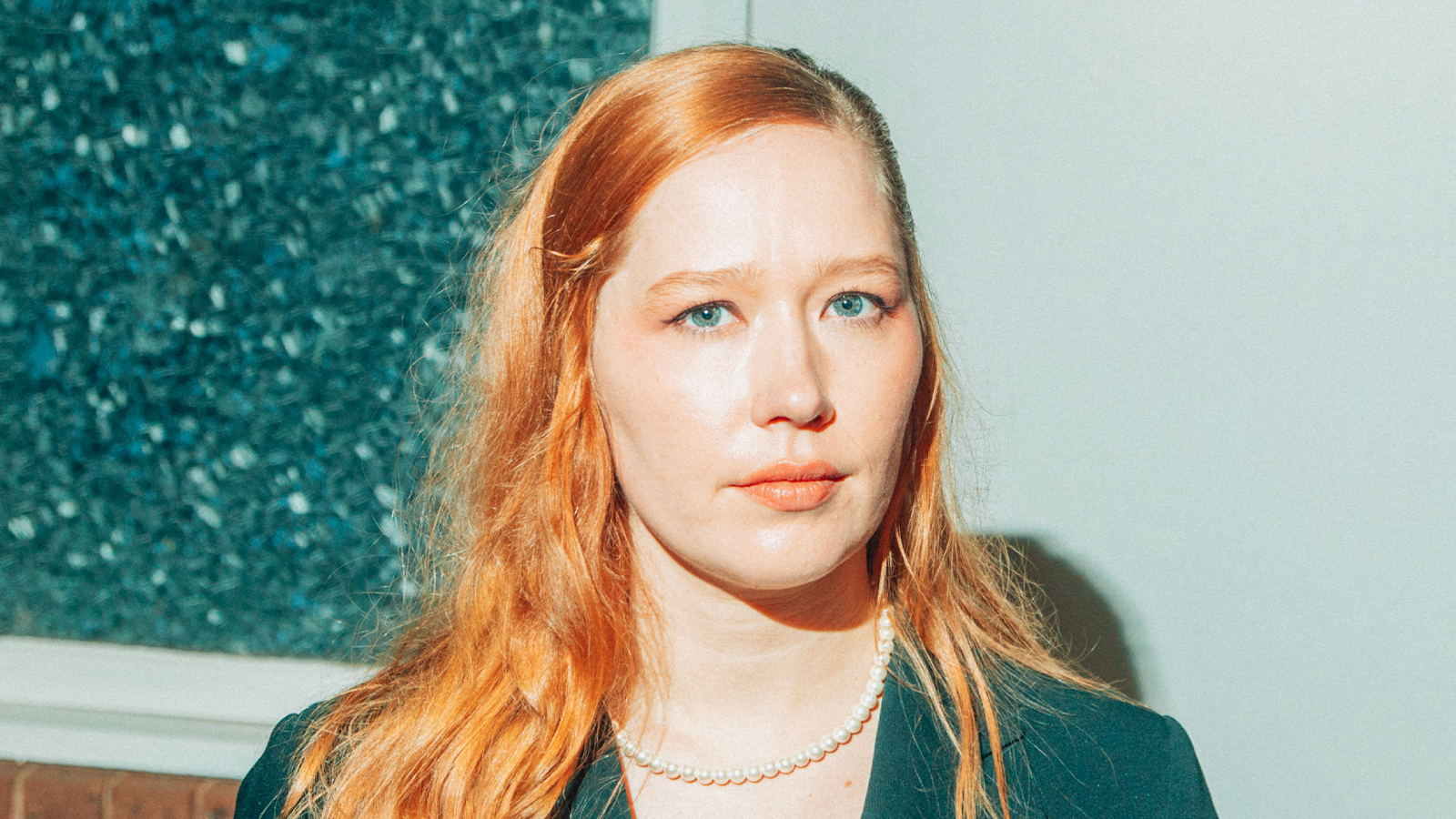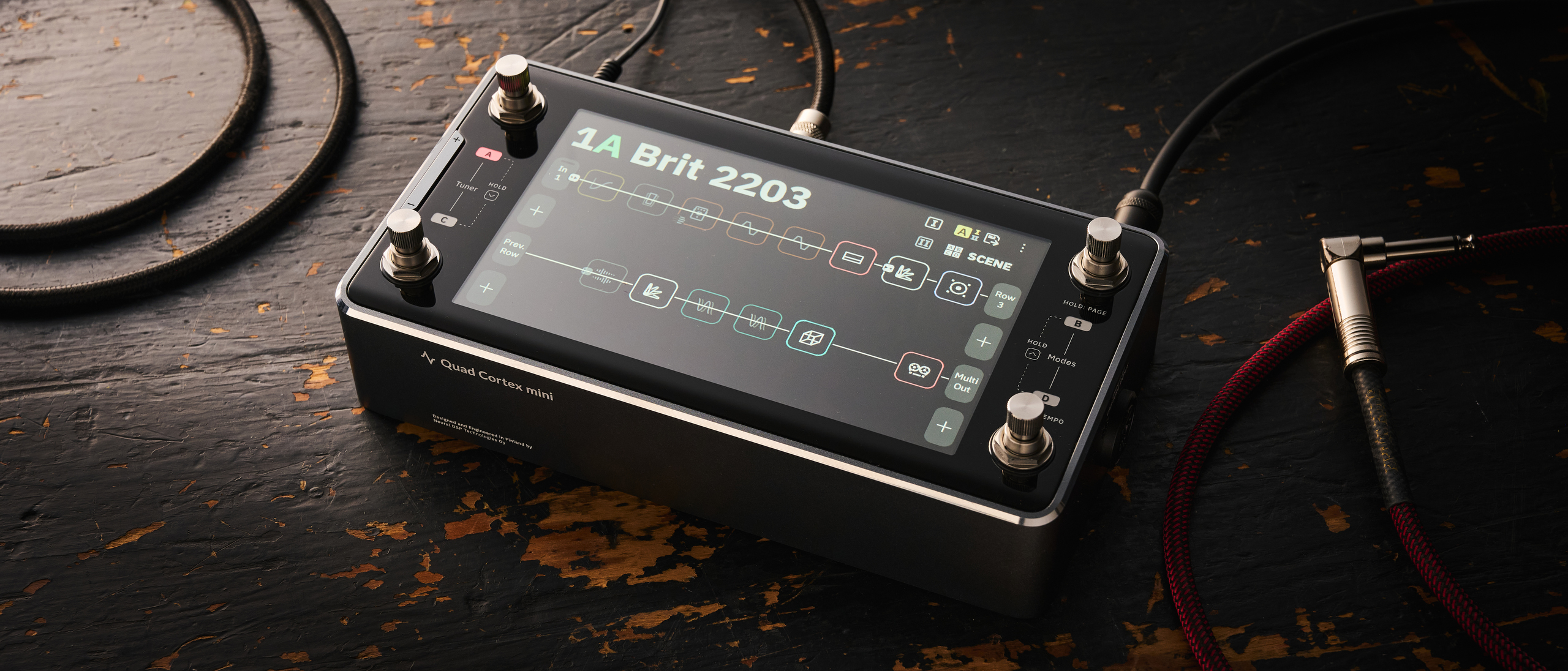Julia Jacklin: “I’m always trying to write songs that sound like they’d play over the end credits in a film”
Julia Jacklin takes Australian Guitar down the rabbit hole of her distinctly colourful new record, ‘Pre Pleasure’

All the latest guitar news, interviews, lessons, reviews, deals and more, direct to your inbox!
You are now subscribed
Your newsletter sign-up was successful
Hell hath no fury like Julia Jacklin’s determination to make you feel things. The Blue Mountains-born, Sydney-raised and Melbourne-based indie stalwart cut her teeth on songs like ‘Pool Party’ and ‘Motherland’, which in addition to being stellar tracks from her stellar debut, 2016’s Don’t Let The Kids Win, share the commonality of being gut-wrenching punches of raw, unrestrained emotion. Jacklin went even more intense on 2019’s Crushing, an album baring her soul with such ardent poignancy that one front-to-back listen would straight-up kill one of the seven dwarves.
In the years since she gave us Crushing, Jacklin has done a fair bit of living: she’s seen new places, met new people and, perhaps most importantly, felt new emotions. Her third full-length effort, Pre Pleasure, is reflective of that: it’s a record of growth, Jacklin headstrong in her endeavour to mine from new sources of creativity. As she noted in a statement preceding the new album’s release, “Making a record to me has always just been about the experience, a new experience in a new place with a new person at the desk, taking the plunge and just seeing what happens.
“For the first time I stepped away from the guitar and wrote a lot of the album on the Roland keyboard in my apartment in Montreal with its inbuilt band tracks. I blu-tacked reams of butcher paper to the walls, covered in lyrics and ideas, praying to the music gods that my brain would arrange everything in time.”
By proxy of that process, Pre Pleasure is a distinctly colourful record, populated with songs as sonically intriguing as they are emotionally impactful. Lyrically, it sees Jacklin as sharp and stirring as ever, ruminating deeply on trauma, sex and religion – and how those motifs often intersect. Most enchanting about Pre Pleasure is how she melds that with her newly enriched musicality, exploring new sounds to match her new thoughts and feelings.
So begs the question: how exactly did she go about embarking on the journey, and what did she find along the way? Australian Guitar hit Jacklin up to find out, and thankfully, she was more than happy to oblige.
So what drew you towards that trusty Roland?
There was just one in the apartment that I was renting when I made the record [laughs]. But initially, before that as well, I was just getting very stuck in my ways with guitar. I think a lot of people have this experience, where it can be pretty easy to plateau. I learnt how to play guitar maybe eight years ago, and I must have improved since then, but it doesn’t necessarily feel like I’ve improved that much.
I’ve gotten to be a much better rhythm guitarist, for sure, but I tend to kind of get a bit stuck in my ways when I’m writing. So starting out with a different instrument, I was trying to throw my songwriter mindset out of whack and just see what happens. And I can’t play keys – like, I’m definitely not gonna play the Roland at a show, I couldn’t subject anyone to that [laughs]. But it just has such a different quality to it. You don’t get stuck in the same sort of routines because it’s not rhythm-based in the same way that guitar is.
All the latest guitar news, interviews, lessons, reviews, deals and more, direct to your inbox!
Did that lead you to think differently about how song ideas would form, and how you’d commit them to the tape?
Yeah, I think it was more psychological. I was picking up the guitar and kind of hating myself, because every time I picked it up, I would just play the same thing that I’ve been playing forever, and I would be disincentivised to keep going because I’d be like, “Oh, no one wants to hear this shit anymore. Come on, Julia…” And I think the songs I was writing [on the Roland] are in the same kind of style as my usual stuff – it was just more psychological in that, being on keys and having it feel so fresh, I wasn’t cringing at myself as often. But I’m sure if I played keys for a really long time, the exact same same thing would happen. It’s a vicious cycle [laughs].
So when you did pick the guitar back up, did you do so with a different perspective on the instrument?
Well, I think it’s two things: One, yeah, quite a few of the songs that I wrote on the keyboard, I then just put to a guitar on the record. So it was more just about taking the guitar out of the foundation of the song, and then bringing it back in to reclaim its role in the overall party. And two, I think Will [Kidman], who plays guitar on this record, he had a lot to do with the guitar-iness of it. He’s just a really beautiful guitar player, in a way that I haven’t had before.
He’s not, like, trained – he didn’t go to the Conservatorium and dedicate his life to “the craft” or whatever – he’s all about feel and comes at it from a bit more of an emotive place. And I think there were quite a few times on the record that I just wanted him to just, like, rock out: just do whatever he needed to do to put his personality on the album. And you can hear it on a few of those tracks where he’s just wailing away.
‘I Was Neon’ comes to mind. I already know that’s going to be a huge one in the live set.
Yeah, 100 percent. I mean, it’s interesting with a lot of these songs because I’ve never played them live, you know, so I have no idea how that’s going to translate. But that’s one of the most exciting parts about touring! When you make your first record, you’ve already road-tested all the songs and you’re just kind of putting down what you’ve already figured out works – but as you go on, a lot of the time, you’re just writing in the studio and making records that no one’s heard. So getting to see how people react to them the first time, at a big show with a whole bunch of people there… It’s kind of scary, but it’s just as exciting.
So yeah, I think it’ll be fun. I initially wrote ‘I Was Neon’ for a band that I was playing in around 2019 – I was playing drums in that band, so I actually had my friend singing it. And that was kind of cool as well, because it came from more of a rhythm-based perspective, and then I came at it again from a different angle when I put on my own record.
Another couple of songs that really stick out for me are ‘Moviegoer’ and ‘End Of A Friendship’ – I feel like they both have a bit of a bluesy, almost “western film score” vibe to them.
That’s interesting, because I’m always trying to write songs that sound like they’d play over the end credits in a film. That’s the ultimate dream, you know, to write those songs. So I’m always imagining things in a cinematic way. And when I was a kid, too, I was obsessed with western films for some reason. Like, ‘Moviegoer’, I wanted that to sound like the M*A*S*H theme song – that was the main reference. I don’t even know why, but that opening scene of M*A*S*H is just forever burnt into my creative mind, so that was where that came from.
And then ‘End Of A Friendship’… I’m not sure if everybody loved this approach, but I kind of wanted the ending to just sound huge. Initially it was just the electric guitar, and then when we put the strings on it, Will was like, “Ah, maybe we should take the guitar out, it’s probably too much at this point.” And I was like, “No! I want them to coexist! I want it to go out with a huge bang!” It’s just very spirited.

Ellie Robinson is an Australian writer, editor and dog enthusiast with a keen ear for pop-rock and a keen tongue for actual Pop Rocks. Her bylines include music rag staples like NME, BLUNT, Mixdown and, of course, Australian Guitar (where she also serves as Editor-at-Large), but also less expected fare like TV Soap and Snowboarding Australia. Her go-to guitar is a Fender Player Tele, which, controversially, she only picked up after she'd joined the team at Australian Guitar. Before then, Ellie was a keyboardist – thankfully, the AG crew helped her see the light…

